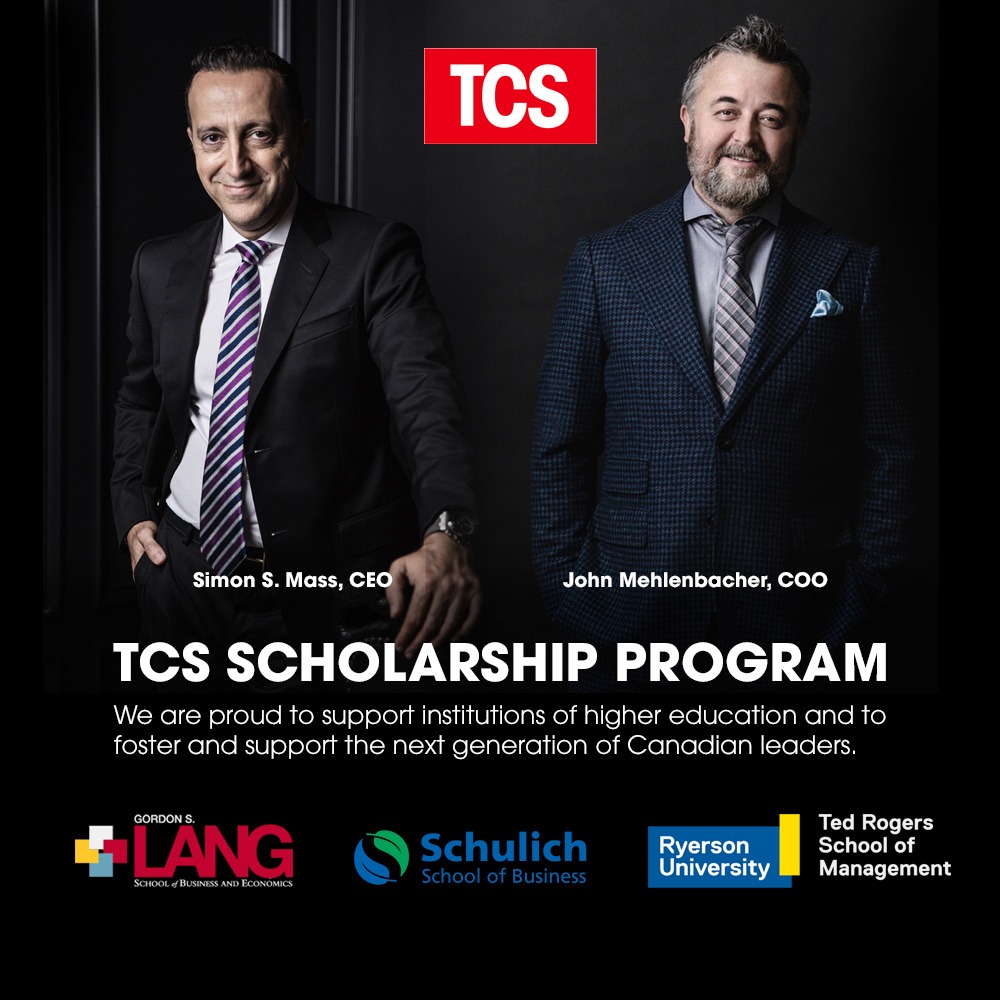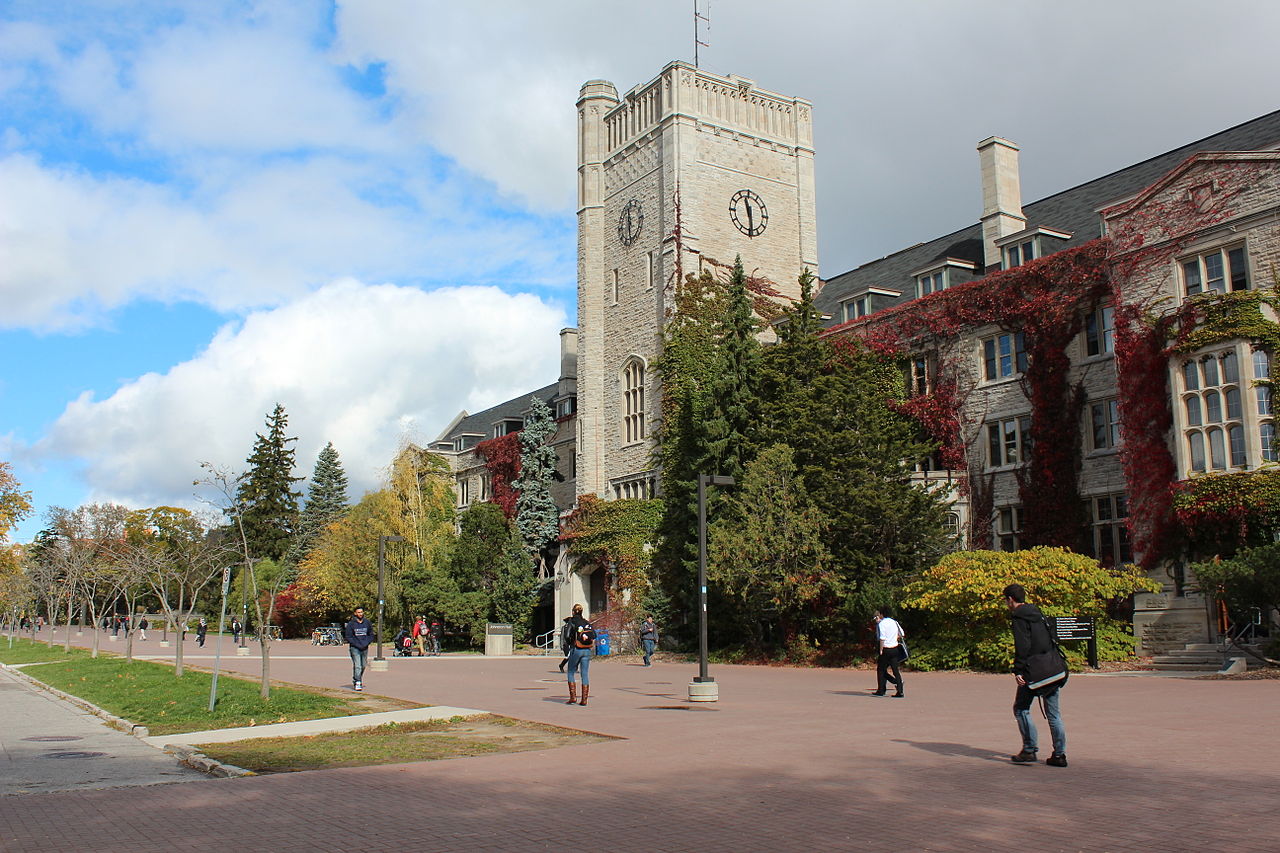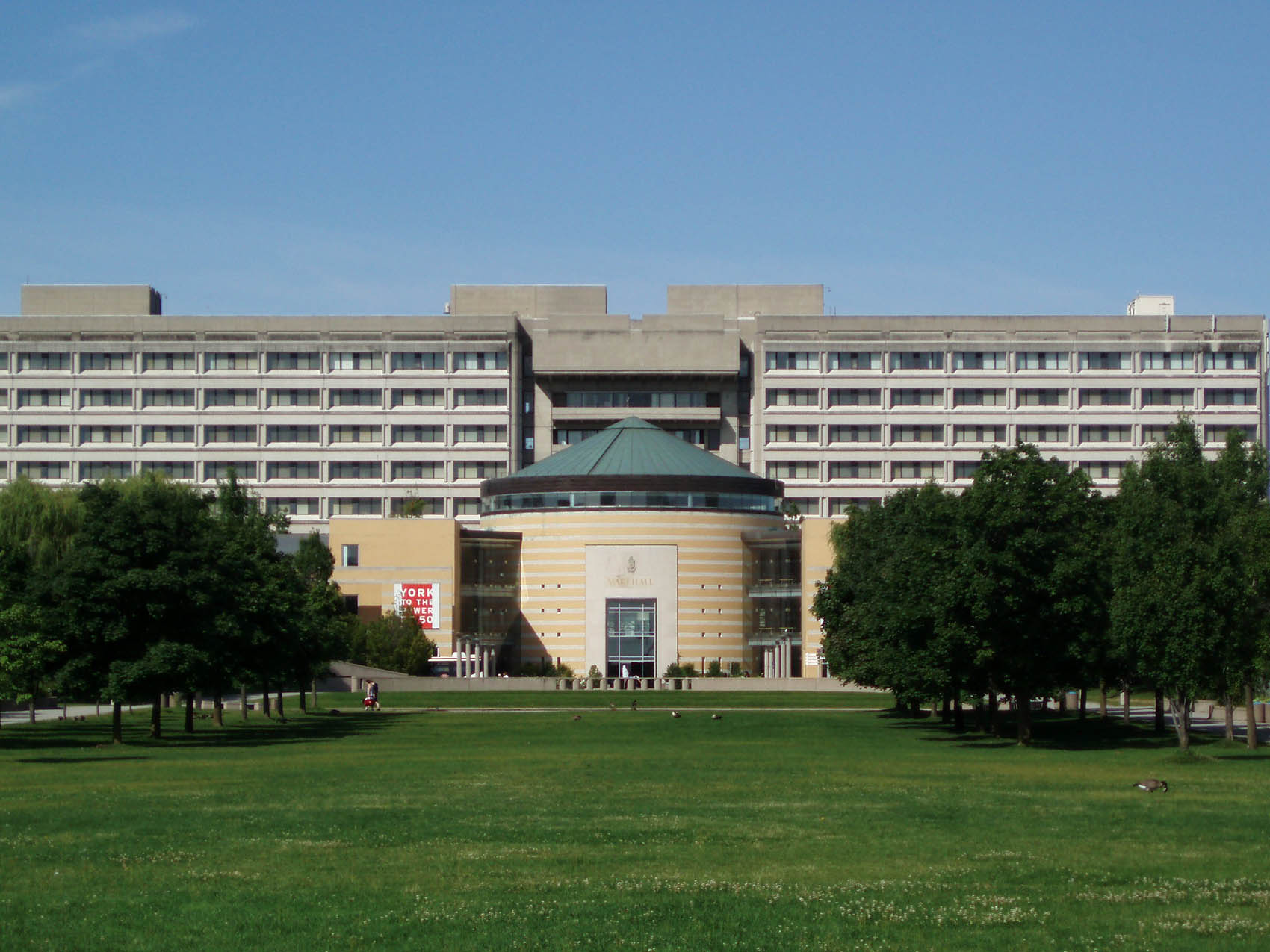

Close


Image courtesy The Condo Store (TCS)
Ontario’s post-secondary institutions produce some of the best and brightest graduates in the country.
The Condo Store (TCS), a leading expert in Canada’s new construction home market, has just endowed a trio of scholarships with three Ontario universities that are known for their esteemed business programs — Ryerson University, the University of Guelph and York University.
Livabl caught up with Simon S. Mass, CEO of TCS, to chat about the post-secondary scholarships and to learn how the company plans to support the future generations of business leaders.
Livabl: TCS has just finalized three new Ontario post-secondary scholarships for real estate and investing programs. Tell us a little about how these scholarships got started and why they were initiated.
Simon S. Mass: We feel a certain responsibility to help out and make whatever impact we can when there are areas of need. Wrapped up inside our company’s community program, the scholarships and partnerships with these three leading business schools are one of the ways we can share some of our experiences and help out students who are hopefully going to be the next game changers in their chosen industries.
A little help along the way, towards actualizing your dreams and goals, can be very meaningful. As an executive group, we feel there is importance on community building, executive leadership and investment analysis, so that’s what the three scholarships are based around.

Photo: Ryerson University / Umair Khan / Flickr
L: Ryerson University’s Ted Rogers School of Management, the Lang School of Business at the University of Guelph and the Schulich School of Business at York University are the three post-secondary institutions that are collaborating with TCS to provide these scholarships. Why were these schools specifically chosen for the scholarships? How do the graduates from these programs make an impact on the Canadian real estate industry?
SM: We were not looking at anything specific when we started to create this program. We wanted the best possible partnerships with the most eager and welcoming partners. We didn’t even have a number of schools in mind. Where we ended up is a great, diverse set of schools and scholarships that will hopefully lead to supporting students to be the best that they can and disrupt the industry when they enter the economy.
Schulich has a tremendous reputation both nationally and internationally. The school continues to attract and graduate top leaders and thinkers, and Schulich is my post-graduate alma mater. The Lang School is an up-and-coming business school that is progressing rapidly up the rankings and pushing forward with emerging programs. Ryerson’s Ted Rogers School of Management really drives entrepreneurship and innovation, and has a tremendously diverse student body.

Photo: University of Guelph / Oacstudent / Wikimedia Commons
L: Share with us some insights on how these scholarships are earned and how much they are worth. What criteria or achievements must recipients meet in order to earn these scholarships? How were these scholarship conditions decided upon?
SM: Personally, and together with the other leaders at TCS, we believe in encouraging the softer skills of business. Charisma, professionalism, smarts and thinking on your feet are all traits of industry leaders and game changers. We also want to hear from the students rather than simply looking at a collection of grades, so we will try to gather some written thoughts and ideas. In a non-COVID world, we can still sit with them, hear them and provide feedback.
We are striving to be an active partner to these schools, and not simply provide the funding and walk away. If we can help in other tangible ways, then we will. Even in the short time since we started, we’ve been able to connect with students, faculty, classes and student groups. If we are helping by providing advice that they otherwise wouldn’t have, then that is great, [it] makes us happy and makes the whole program worthwhile.
L: In February, you volunteered at the University of Bath in the United Kingdom, which is your undergraduate alma mater. Tell us about your experiences in speaking with the students there and the entrepreneurial competition that took place.
SM: It has been very exciting for me to connect back with my undergraduate alma mater in a few ways.
They interviewed me for the alumni paper and then I was asked to help in the Bath Entrepreneurs program, which brought together student ideas for businesses and technology. I served as a judge for the program, and was able to give a speech and do a lengthy Q&A with the participants and observers. I was amazed by the concepts that were put forward, and I’ll tell you that choosing winners in the categories was not easy.
It makes you proud to think of what is coming next in terms of ideas and leadership. I was happy to help, and even learned a few things!

Photo: York University / Open Grid Scheduler / Grid Engine / Flickr
L: You appeared as a guest lecturer at a second-year real estate course at the Lang School of Business in March. What were some of the lessons that you shared with the students, and what are some of your takeaways from that experience?
SM: Similar to the experience with the student groups at Bath, I was impressed with the poise and knowledge of this second-year class from Guelph. I talked about my journey, and really tried to focus on the key points where risk or decision-making occurred.
I will always tell young people starting out to experience everything and worry less about the consequences, because as you get older and further into your career, the consequences intensify and the risks increase exponentially. I gave them massive kudos for what they have been doing for the past year while campuses have been closed. Even doing the one-hour lecture virtually felt a bit odd and not as effective, and they have been doing this type of learning for a whole year now. I also feel for the faculty, as delivering important content in a meaningful way has been tough, and I give them a lot of credit for trying to keep the students engaged online for this length of time.
L: Why does TCS feel it is important to support the next generation of leaders in the real estate industry through these post-secondary scholarship programs?
SM: It’s not just real estate — we want to support the next generation of leaders in whatever field they end up in. It could be real estate, and that would be great of course, but the reality is that people, as I did, will find their calling and find themselves moving around to discover their niche and where they feel they can contribute the most and be impactful. And they should. I have an engineering degree and founded a real estate investment company. Work hard, find your passion, try everything and develop your soft skills — that is what I believe to be the key to being successful.




